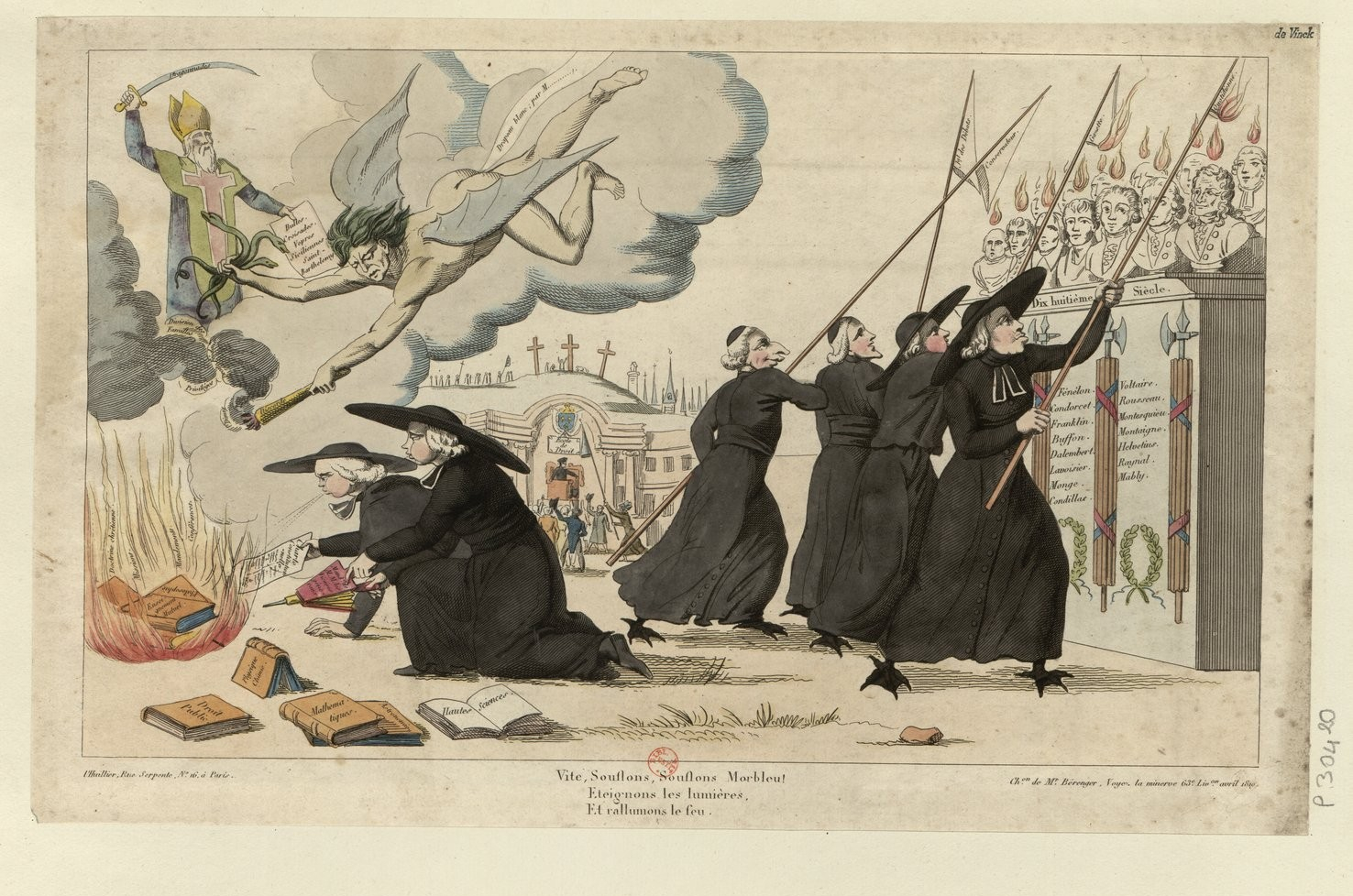The outlines of the new regime were already starting to take shape before the October Days. The Great Fear prompted the National Assembly to abolish in law what the peasants were destroying in fact. On the evening of August 4, 1789, the deputies voted that taxation would be paid by all inhabitants of the kingdom in proportion to their revenues, and that public expenses would be borne equally by all.
The clergy also gave up tithes, and the liberal minority of the second estate surrendered the nobility’s game preserves and manorial dues and courts. The Assembly abolished the remnants of serfdom, forbade the sale of justice or of judicial office, and decreed that “all citizens, without distinction of birth, can be admitted to all ecclesiastical, civil, and military posts and dignities.” The Old Regime was dead.
Three weeks later, on August 26, the National Assembly formulated the Declaration of the Rights of Man. “Men are born and remain free and equal in rights,” it asserted. “These rights are liberty, property, security, and resistance to oppression.” It called property “an inviolable and sacred right,” and liberty “the exercise of the natural rights of each man” within the limits “determined by law.” “Law,” the Declaration stated, “is the expression of the general will. All citizens have the right to take part, in person or by their representatives, in its formation.” Further, “Any society in which the guarantee of rights is not assured or the separation of powers not determined has no constitution.’
The Declaration of the Rights of Man mirrored the economic and political attitudes of the middle class, though it was also attractive to many aristocrats. It insisted on the sanctity of property, and it proclaimed that “social distinctions may be based only on usefulness,” thus implying that some social distinctions were to be expected.
It incorporated the key phrases of the philosophes: natural rights, general will, and separation of powers. The National Assembly made a resounding statement of the ideals of the Enlightenment; yet, as the subsequent history of the Revolution demonstrated, it found no formula by which to translate these ideals into practice.
The economic legislation of the National Assembly provided a case in point. Belief in the theory of equal taxation did not solve urgent financial problems, for the new and just land tax imposed by the deputies could not be collected. Tax collectors had vanished in the general liquidation of the Old Regime, and peasants now assumed that they owed the government nothing. Once again, the French state borrowed until its credit was exhausted, and then, in desperation, the National Assembly ordered the confiscation of church lands (November 1789).
The government thus acquired assets worth at least 2 billion livres. On the basis of this collateral it issued assignats, paper notes used to pay the government’s debts, which temporarily eased the financial crisis. Unfortunately, the Revolution repeated the mistake of John Law at the time of the Mississippi Bubble: It did not know when to stop.
As the state sold parcels of confiscated land—that is, as it reduced the collateral securing its paper money—it was expected to destroy the same amount of assignats. But the temptation not to reduce the number of assignats proved too great to resist, and inflation resulted. The assignats, progressively losing their solid backing, depreciated until in 1795 they were worth less than 5 percent of their face value.
The state sold at auction the property seized from the church and from aristocratic émigrés (those who had left the country). Some peasants profited by the opportunity to enlarge their holdings, and many bourgeois also bought up land, sometimes as a short-term speculation. The poor and landless, however, gained nothing, since they could not afford to buy, and the National Assembly made no move to help them.
Following laissez-faire doctrines, the Assembly abolished the guilds and the tariffs and tolls on trade within France. And deeming the few simple organizations of labor unnatural restrictions on economic freedom, it abolished them, too. In June 1791, after an outbreak of strikes, it passed the Loi de Chapelier, banning strikes, labor unions, and many guilds.

